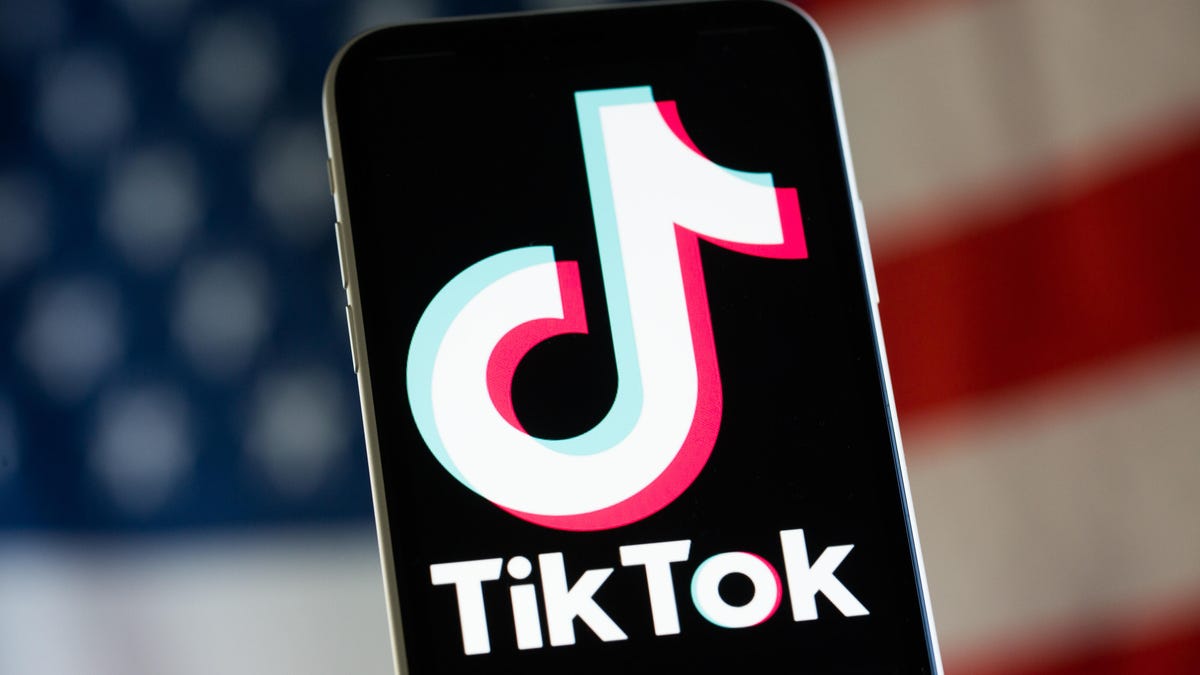Trump plans to ban TikTok in the US, report says
Action could come soon.

President Donald Trump said late Friday that he planned to ban TikTok from the US. The action could come as soon as Saturday.
"As far as TikTok is concerned we're banning them from the United States," Trump told reporters on Air Force One.
President Trump announces to reporters on Air Force One that he’s banning TikTok.
— Kaitlan Collins (@kaitlancollins) August 1, 2020
Earlier on Friday, Bloomberg reported that Trump planned to order Beijing-based tech company ByteDance to divest ownership of popular social-video app TikTok. And on Saturday morning, Reuters reported that in response to Trump's Air Force One comments, ByteDance had agreed to completely divest TikTok's US operations.
However, Trump's remarks aboard the president's plane, which were covered in a pool report, indicated he doesn't support such an idea and instead plans to use an executive order or emergency economic powers to ban TikTok.
The White House didn't immediately respond to a request for comment.
Banning TikTok could escalate tensions between the US and China. Politicians have raised concerns the Chinese government could use the app to spy on US citizens or spread propaganda during an election year. Two senators have also requested the Department of Justice open an investigation of TikTok, as well as Zoom, which has China connections.
Last month, India banned TikTok and dozens of other Chinese-owned apps after tensions along its border with China prompted a military clash. TikTok has pushed back against allegations the app poses a national security threat, noting that it "never provided user data to the Chinese government" and wouldn't do so even if asked.
The Trump administration has been looking at different actions against TikTok.
"We're looking at TikTok, we may be banning TikTok. We may be doing some others things. There are a couple of options," Trump told reporters earlier on Friday. "But a lot of things are happening. So, we'll see what happens."
Microsoft has been in talks to buy TikTok's US operations, Charles Gasparino, a Fox Business Network correspondent, tweeted on Friday. The New York Times, citing a person with knowledge of the discussions, reported that it's unclear how far the talks have gone.
A TikTok spokesperson said in a statement that the company doesn't comment "on rumors or speculation" but it's "confident in the long-term success of TikTok." Microsoft declined to comment.
Reuters' Saturday morning report said ByteDance's divestment proposal would put Microsoft in charge of protecting the data of TikTok's US users but that the plan would allow for another US company to take over TikTok in the states.
Microsoft declined to comment on that report, and the White House didn't immediately respond to a request for comment. ByteDance pointed to a video statement from TikTok US General Manager Vanessa Pappas in which Pappas says TikTok in the US isn't "planning on going anywhere" and "is here for the long run." And a TikTok spokesperson said TikTok is "committed to protecting our users' privacy and safety."
A message to the TikTok community. pic.twitter.com/UD3TR2HfEf
— TikTok (@tiktok_us) August 1, 2020
TikTok is under review by the Committee on Foreign Investment in the United States (CFIUS), Treasury Secretary Steve Mnuchin confirmed earlier this week. He told reporters outside the White House that Trump would get a recommendation on the Chinese-owned video app this week.
CFIUS reviews foreign acquisitions for potential national security risks. TikTok parent company ByteDance bought US company Musical.ly for around $800 million in 2017. Musical.ly was then rebranded as TikTok.
TikTok has seen its popularity explode over the past year, but that growth has also fueled concerns that the Chinese government might have sway over the app. The US Army and Navy have banned service members from downloading the app to government-issued phones. Democratic and Republican national committees have warned staffers about it. The Transportation Security Administration barred workers from using the app for social media engagement and Wells Fargo told employees to remove it from their work devices.
The Trump administration has been considering action against TikTok under a federal law called the International Emergency Economic Powers Act, according to the Times. The law allows the president to regulate international commerce after declaring a national emergency in response to any unusual or extraordinary threat to the US. The US Commerce Department could also put TikTok on its "entity" list, restricting the company's access to US technology. Adding TikTok to the list would mean that Google and Apple would have to pull it from their app stores. Trump's administration could lobby US lawmakers to enact legislation that targets TikTok as well.
Michael Pachter, an analyst for Wedbush Securities, said ByteDance could take "a minority interest in the US operations." This could happen through a sale or through an initial public offering, he said.
Unlike other major tech firms, Microsoft wasn't at the lengthy antitrust hearing attended by Facebook, Alphabet, Amazon and Apple on Wednesday.
The software giant "might be able to pull this off and may be capitalizing on the opportunity, where the other guys would face scrutiny," Pachter said.
In regard to a potential ban of TikTok, the American Civil Liberties Union said such a move would infringe on rights without addressing the larger issue of government spying.
"Banning an app that millions of Americans use to communicate with each other is a danger to free expression and is technologically impractical," ACLU Surveillance and Cybersecurity Counsel Jennifer Granick said in a statement Saturday. "With any Internet platform, we should be concerned about the risk that sensitive private data will be funneled to abusive governments, including our own. But shutting one platform down, even if it were legally possible to do so, harms freedom of speech online and does nothing to resolve the broader problem of unjustified government surveillance."



